Farewell to the PS2
by SealWyf, HSM Editor
The book makes no sense.
The letters have scrambled themselves on the page, creating words in an unimaginable language. In the next chapter, they have mutated into alien characters. You leaf through the book, seeking meaning. But the text is melting, sliding down the paper into a pool of ink in the lower margin. The pages disintegrate in your hands, crumbling until all that remains is an empty cover and a drift of fibrous dust. Only a tiny label remains, stamped on the inside cover: Book 1.0.
Damn, you think, I should have upgraded.
This couldn’t really happen, of course — it’s a fantasy, a fiction for your amusement. But, to us electronic gamers, it’s a familiar scenario. Because, unlike books, games depend on a hardware intermediate, a computer or a gaming console, to transform their binary code into human experience. And consumer electronics have a notoriously short lifespan.
I discovered console gaming in 1998 with what would later be called the PS1, but was then simply the PlayStation. Over time, I upgraded to the PS2, and then to the PS3. But I have kept most of my games — those early titles are still some of my favorites. Counting up the cases on my gaming media bookshelf, I find I have 33 for the PS1, 27 for the PS2 and 17 for the PS3.
The smaller number of PS3 titles is caused by a number of factors. When I moved to the PS3, I discovered Home and the downloadable titles from the PSN Store, and my total expenditures there have vastly exceeded what I spent on the PS1 and PS2 combined. But another factor is that most of the PS3 disc-based titles don’t appeal to me as much as the games I played on the earlier consoles. Which makes it all the more painful that these games are, upgrade by upgrade, becoming unplayable.
Now the PS4 looms on the horizon, shrouded in a cloud of speculation. There are already plenty of rumors, though we won’t have official pronouncements to verify them until the press release of February 20. But one of the most believable rumors is that the new console will use an off-the-shelf chipset instead of the proprietary, custom-built chips of the earlier PlayStations. Which means that backward compatibility will vanish, because the earlier games’ machine code will no longer be supported.
Backward compatibility has been spotty, even with the current consoles. The PS2 supported PS1 games, and the early PS3’s supported games from both of its predecessors. However, later PS3’s dropped PS2 compatibility as a cost-saving measure, meaning that fans of the PS2 titles needed to maintain a second console. This was a nuisance, but not impossible — the PS2, in a slimmed-down, compact version, was still being manufactured.
Until it was discontinued, in January, 2013.
There’s still hardware available — plenty of used consoles, and a shrinking supply of new ones, though prices are, predictably, soaring as the inventory shrinks and users panic. But the end is in sight. We can play our PS2 games until the hardware dies — perhaps in five to ten years. After that — well, we’ll deal with it when it happens. Perhaps the best of the PS2 games will have been ported to the PS4 or its successors. Perhaps we’ll be able to play them on the cloud, on remotely-hosted emulators. That seems like an increasingly likely option, the way the gaming industry is going.
Ten years from now, there may no longer be dedicated gaming consoles. This world we have embraced with such passion and enthusiasm, and a considerable amount of money, may simply be a transitional phase in the history of entertainment, a blip in technological evolution like Betamax or analog videodiscs.
We’ll adapt. We always do. But that doesn’t mean we’ll be happy about it. And I have great sympathy for Sony, which is desperately trying to adapt the console gaming business model to the changing realities of the entertainment marketplace. Gaming consoles were a brilliant way to provide an immersive game experience fifteen years ago, when home PC’s were still relatively rare, under-powered and expensive. For a few hundred dollars you could get prodigious amounts of specialized computing power and what then seemed like superlative graphics.
And since it was a proprietary box, there was a captive market for game sales. Consoles became loss leaders, sold at or below manufacturing costs. The real money was in the games, which consequently became more and more expensive, leading to consumer angst. Even at my income level, $60 for a disc-based game is simply not an impulse purchase.
It was not a stable situation. Anything overpriced and reusable will spawn a resale market, and games were no exception. Used game stores became big business, and cut significantly into the game publishers’ profits — and the profits of the console manufacturers as well, since they depend on licensing fees from the publishers. This was good for the consumer, but poison for the game providers. Something had to change.
And so Sony started to move its operations to the cloud, with downloadable games from the PlayStation Network Store. A downloadable game can’t be resold. Another of the rumors about the PS4 is that it will only use downloaded content. Disc-based games will follow dinosaurs and buggy-whips off the cliff of extinction. The game resale business will dry up. And anyone without reliable high-speed Internet access will be pushed off the playing field.
Some of us are not very happy about this.
It’s not that I’m against technological advancement. I’m a computer professional, and I consider myself a bit of a nerd. I accept that media evolve along with the rest of the material world. But sometimes it feels like I’m living in a Super Mario Brothers game, hopping from one moving platform to another to advance, or even stay in one place. I have replaced phonograph records with CD’s, and then with MP3 files on my iPod. I’ve acquired movies on VHS tape, replaced the tapes with DVD’s, and am now moving away from physical media entirely with streaming content. Even my beloved books have been upgraded, although the paper copies remain perfectly legible. I am now on my third Kindle — my fourth, if you count the reader on my iPad.
Through all of this, I may have been annoyed by the expense of media replacement, but I never lost my library. In fact, my virtual library has expanded dramatically, and in unexpected directions. My video collection includes remastered silent films and a huge collection of Doraemon cartoons. My music library includes Brian Eno ambient tracks (great listening while programming), ancient Delta blues recordings from the Library of Congress, and a huge amount of “world music”, ranging from Indonesia to North Africa. My Kindle currently holds the complete works of H. P. Lovecraft, Robert E. Howard and O. Henry, as well as amateur self-published novels and facsimile Victorian poetry anthologies. These riches were unthinkable even twenty years ago, let alone in my childhood.
The frustrated and lonely child of the 1950’s, who camped out in the library after school to bury herself in books, has lived to see a paradise of media. We are approaching a true universal library. And year by year, its range expands, as the archives of the world are digitized and sent to live in the cloud. Everything, even the most unlikely material, is being preserved.
Except electronic games.
Games are the exception because they are hardware-dependent. And the hardware keeps changing, because there is an arms race among the computer chip and console manufacturers, who vie to provide more CPU cycles, more pixels, more polygons, and more immersive game experiences, so they can tap more of the finite pool of our gaming entertainment budget.
And so electronic games are ephemeral. Their experiences may be as intense and meaningful as books or movies, but they are still doomed to extinction once their supporting hardware is retired.
For most games, this doesn’t really matter. I could dispose of most of my game library without regret. But there are games there I will miss, experiences whose demise I am already mourning.
Can I face a future where I will not be able to share the adventures of Tidus and Yuna? Can I imagine a world where I cannot push a Katamari or zone out in the abstract world of Rez? Where I can’t bash sheep with Spyro the Dragon? And sometimes all I want to do is load up Gauntlet: Dark Legacy and invade the ethereal domain of the Sky Pirates, occasionally turning into a chicken. These are experiences as visceral and comforting as a mug of hot chocolate, as nostalgic as the opening scenes of “Star Wars”. But, upgrade by upgrade, they are vanishing.
As a stopgap, I have purchased a new slim PS2. And I’ll be keeping my PS3 alive as long as possible. Together, they will keep me going until the next platform floats by, and I launch myself into another arm-flailing leap into the future.
But this is merely a personal stopgap, Seal building a barrier against the rising tide of technological death and decay. That’s all well and good, but there is a societal issue here too, a cultural one. And it involves something very like our cumulative shared heritage.
As modern humans, we live in our minds, and our minds have been formed by media. We all revisit the content we love — the beloved book, the favorite song, the fondly-remembered movie. The world would be a poorer place if we could no longer see Humphrey Bogart and Claude Rains striding into the desert at the start of a beautiful friendship. Each of us builds an inner library of media experiences — the songs and stories and images we have loved. These things become part of our souls.
For those of us who are gamers, this includes games.
We need to find a way to keep these things alive. There are already emulators for arcade cabinets and early computers and gaming consoles, and some surprisingly realistic pinball simulators. Some of the classic text adventures can be played online.
This past week, a number of vintage arcade games appeared simultaneously on Home and the Vita — beloved titles such as Centipede, Asteroids and Frogger. Meanwhile, Home developer Digital Leisure has acquired the rights to the arcade games Dragon’s Lair and Space Ace, and is happily releasing them on every platform that will support them.
This needs to continue. Emulators need to happen. New consoles should support earlier games whenever possible. The best games should be ported to new platforms, where they can delight new generations of gamers, while keeping us old-timers happy. (You do realize that the demographics of gamers are skewing older these days? Of course you do.) And whatever licensing issues are standing in the way of this must be resolved.
These games are part of our cultural heritage, as much as books and movies and music are. They have entered our inner soul-libraries, our personal collections of metaphors and memories, our vocabulary of stories.
They are part of us now. And they deserve to survive.
Share
| Tweet |


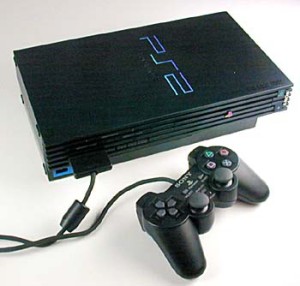
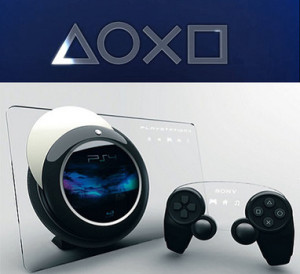
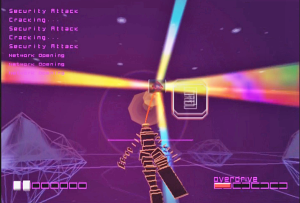
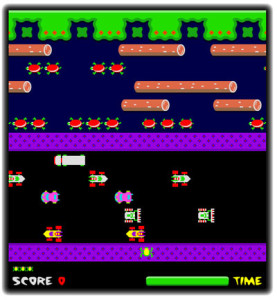
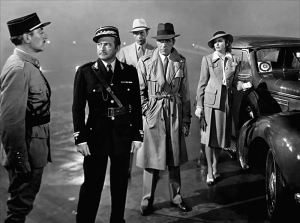
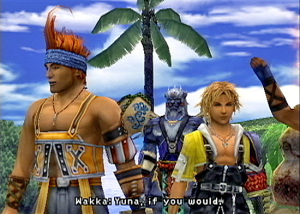
Well said! Really enjoyed reading this…
I saw an app in the US PSN Store the other day that was called a PS2 player or something, looked like an emulator to allow the PS3 to play PS2 games I thought? I have about 70 or 80 PS2 games that I can’t play due to the loss of my original PS3 (I now have a much less impressive slim model) also the death of both of my PS2s means they just sit on a shelf doing nothing, for now.
I don’t mind re-buying properly old retro games like Lunar Lander and Frogger in Home because you get more than just the game -- kinda. Actually, I’ve already admitted to having a total nerdgasim about the prospect of having my own retro themed arcade in Home. We’re not quite there yet, Im still waiting on an appropriate space that’ll truly give my idea that scense of nostalgia and authenticity, but if I can wait four years so far, I can wait however much longer it takes to get my little museum of games.
I might add more to this comment later since I have so much to say about it but the phone I’ve been forced to use for my morning reading of HSM is old tech, a slow, monotonous trudge of misread button presses and frustration…
I’m totally going to have to look into that, Krazy. I know there are PS2 emulator for PC’s, but hadn’t heard of one for the (slim) PS3. That could solve a multitude of problems. Thank you!
Steady now! Don’t quote me on it! Was just something I noticed in the App section of the Store. I think I read something about it only being compatible with particular models of PS3, I’m not sure, check it out n’ let me know what you find…
Will do. I may be able to get another article out of this…
Description of the PS2 System Data app:
This is a system data for playing PlayStation2 format software that must be installed on the hard disk of a PlayStation3 system.
Note that this system data cannot be used on CECHH00 series PlayStation3 systems (models with 40 GB hard disks).
For US and Canadian users: (Compatible with CECHA0, CECHB01, & CECHE01)
If you download the PS2 System Data and install it on the PlayStation3 system, you will be able to play PlayStation2 format software that is compatible with hard disk installation. For more infomation about compatible software…go to the PlayStation Network official Web site.
It then goes on to describe how to install the system data and play games.
Hope this helps.
Alas, it seems to be limited to a very few games:
http://manuals.playstation.net/document/en/ps3/current/game/hddinstall.html
You can install these PlayStation®2 format software titles in the system storage of the PS3™ system:
[Nobunaga’s Ambition Online] and [Expansion Packs]
[FINAL FANTASY XI] and [Expansion Discs]
[SOCOM II: U.S. NAVY SEALs] and [Related discs included with OPM*2 Issue 87, OPM Issue 88, OPM Issue 89, OPM Issue 90]
SOCOM 3: U.S. NAVY SEALs
SOCOM: U.S. NAVY SEALs Combined Assault
Translation: if you don’t like first person shooters, you don’t count.
This is my unimpressed face.
Heh heh, sorry guys… I guess letting us use our already bought n’ paid-for games wouldn’t make em much money huh. I thought it seemed too good to be true, ah well.
Seems weird to put up an app like that for less than a handful of games though…
Not your fault, Krazy. Just my general dissatisfaction with this console generation’s glut of burly, sweaty, gritty thirtysomething males with assault weapons spilling over.
After re-reading the documentation, I see that this is not an emulator, but a way to create a data partition for cloud-based PS2 games on a PS3 HDD. And so I assume it does nothing of any use if you install it on a PS3 that does not already support PS2 games. Oh well.
Emulators. We needs them. Can we hope?
Theres a few landmark games that I enjoyed I would keep apart from that if I had a real retro urge, for the price of a ps3 game I can buy an older console off internet auction site with loads of games and all the trimmings. They may be dead if you want brand new but the Web has given retro consoles and games an outlet that doesnt involve living in your loft till it gets chucked away.
I have a PS2 and PS3 so I can play all of the older games if I choose to right now. I only fire up the PS2 rarely so it should last me a good long while. Being a Final Fantasy buff it would be great to see all of the series ported over to the PS3 and 4 both in a digital download. They already have 7, my fave there for purchase as well as a few of the others, but it would be good to see all of them from the beginning on. Great article seal.
Things only die when people no longer remember,or talk about them. The PS2 is an immortal piece of my developement from bright upstanding member of society to the jackass game addicted home resident I am today… The attari passed away many years ago, but this holiday season, I was able to purchase an attari varity system at a price of 40 bucks, wth 80 classic attari games, Is this the destination of ps1, ps2, and ps13 game systems…who knows but for my ps2 and ps3 and 4 to come… “Let the games begin,and never end”